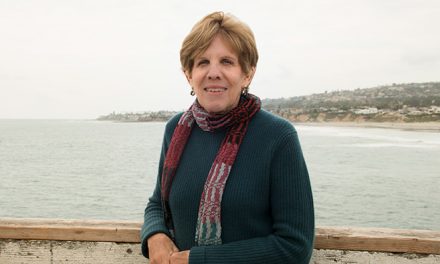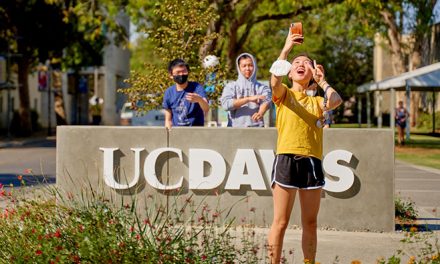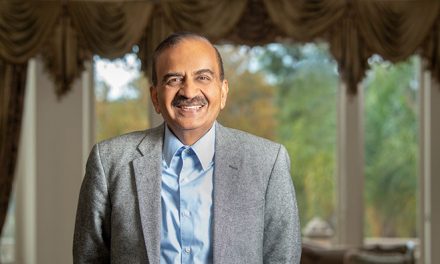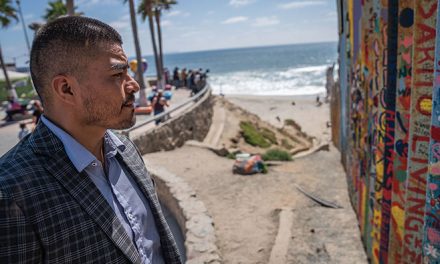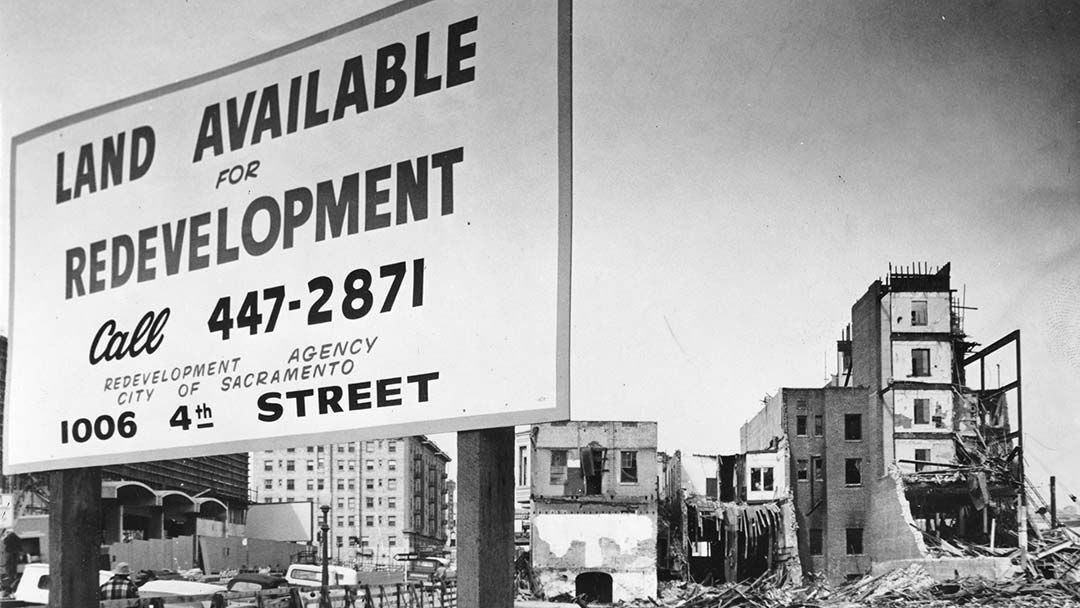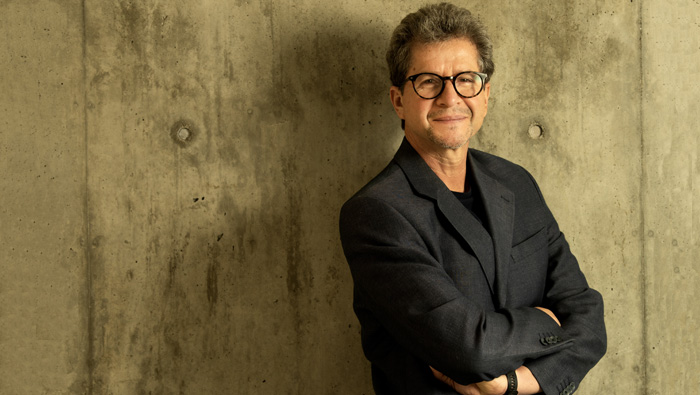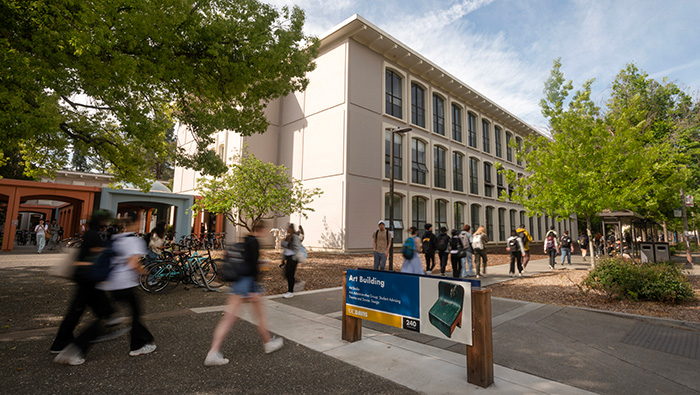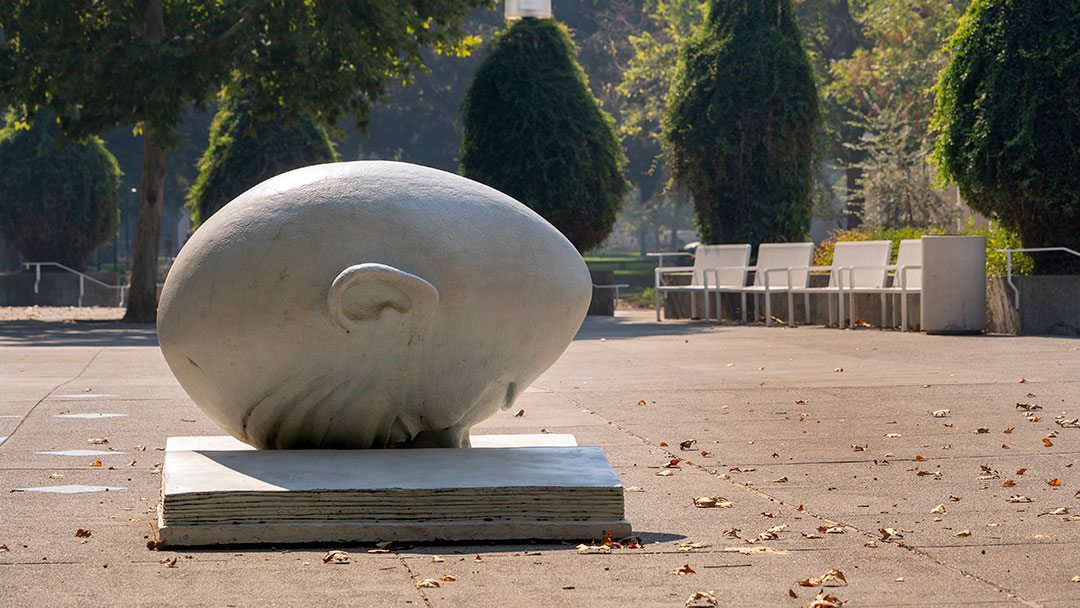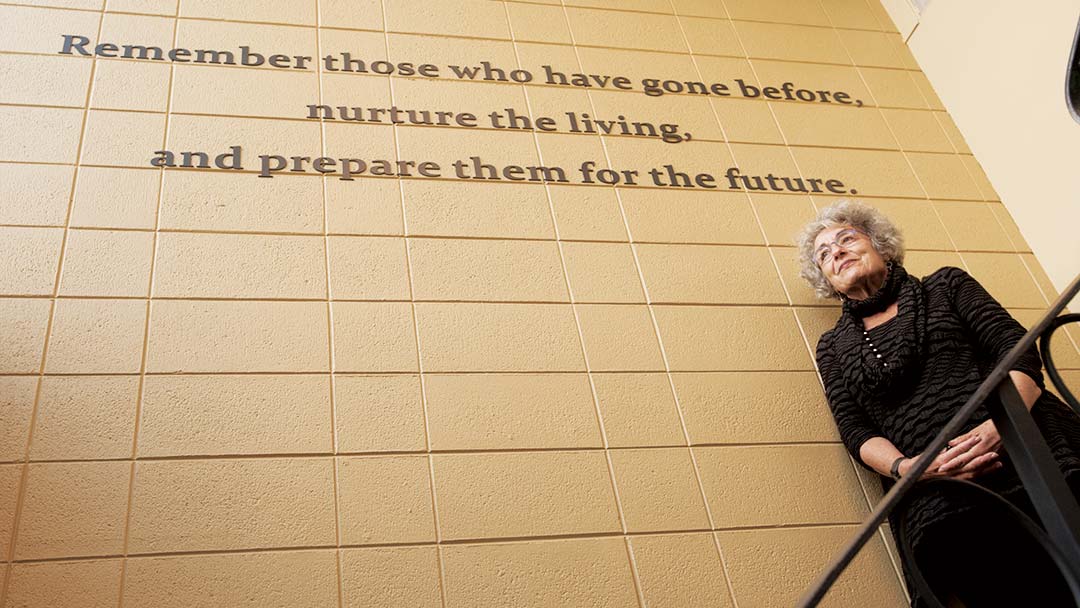
Dianne Wolf, at the Jewish Family and Children’s Services Holocaust Center.
Photo: Gregory Urquiaga/UC Davis
Workshop Tackles How To Teach the Holocaust
A seminar devised to help high school teachers better approach the Holocaust is coming to an end.
Started six years ago by a UC Davis faculty member, “The History and Memory of the Holocaust” workshop aims to help secondary English and history teachers better understand the Holocaust and then develop lesson plans on the subject.
“The idea for the workshop came about when I offered to talk to my son’s 10th-grade world history class, and his teacher said she didn’t know how to teach the Holocaust. She felt that it’s too overwhelming,” said Diane Wolf, a professor of sociology and director of the Jewish Studies Program at UC Davis.
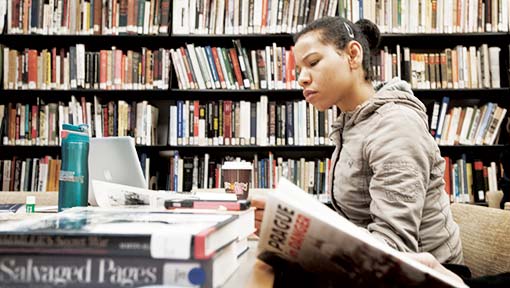
Audrey Momoh, a high school teacher in El Cerrito, reads a book at the Jewish Family and Children’s Services Holocaust Center.
Photo: Gregory Urquiaga/UC Davis
Wolf partnered with the UC Davis History Project, which provides professional development for the region’s teachers, to develop an academic seminar that incorporates scholarly talks, films, reading and discussion. The group of about 20 also travels to the Jewish Family and Children’s Services Holocaust Center in San Francisco, where participants can explore the archive and speak with educators. They also hear from survivors.
The program has been funded by the Conference on Jewish Material Claims Against Germany, which contributes half the budget, and money raised by Wolf from private donors. The money from the Claims Conference is no longer available, which means the workshops will end.
Laima Haider, a teacher at College Park High School in Pleasant Hill, first attended the workshop in 2013 and has since returned to share her lesson plan with other participants.
“I struggled with teaching the Holocaust for years,” she said. “How do I teach the future about something so important to remember? My old curriculum was overly simplified. With the help of [this program], I now have a detailed and telling study of the Holocaust for my students.”
California has a mandate to teach the Holocaust in 10th-grade world history class, but how it is covered varies depending on the teacher, said Morgan Blum Schneider, director of education at the JFCS Holocaust Center. Connecting with teachers is vital.
“With each teacher we estimate that 100 students are reached in a year,” said Blum Schneider. “And many teachers feel intimidated by the subject. They don’t want to teach it wrong. That’s where we come in. We want to try to provide the resources and help give confidence that they can do this in a really powerful way.”

